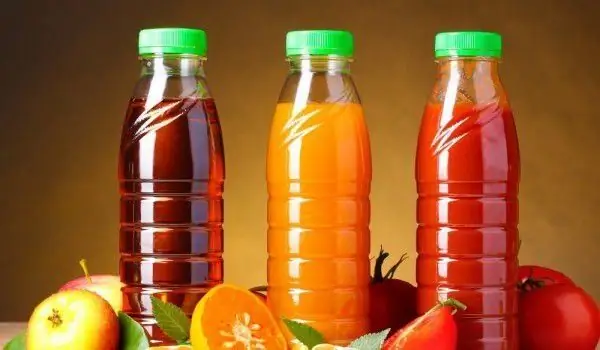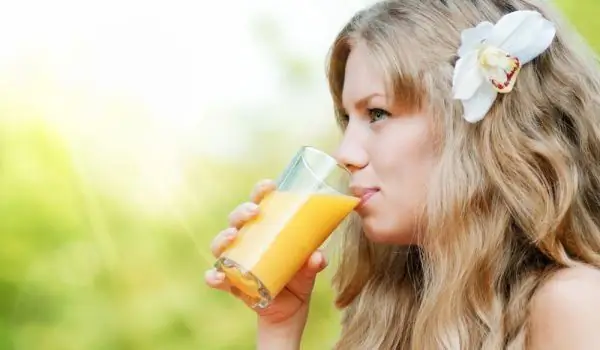2025 Author: Jasmine Walkman | [email protected]. Last modified: 2025-01-23 10:18
From the end of April 2015, all fruit juices produced in the European Union must be without added sugar. A decision of the Council of Ministers of the Republic of Bulgaria also prohibits its use.
It should be clarified that the ban on the use of sugar in fruit juices comes into force on the day of its adoption in Bulgaria - ie. of October 28, 2013.
The grace period, which is granted until April 28, 2015, is to enable the fruit juices already produced before October 28 to be sold in the commercial network within this period.
The adopted measure will apply exclusively to fruit juices. Consumers need to be especially careful about what they buy and to distinguish between squeezed fruit juices and concentrate juices.

A novelty is the official inclusion of tomatoes in the list of fruits from which fruit juices are made.
The new ordinance, which was adopted by the Council of Ministers, reduces the values on the Brisk scale for some fruits. This means that the sugar content per unit of aqueous solution is reduced. An innovation is the requirement for the name of the products to reflect the fruits, and a definition of flavor is included.
The ban on sugar will apply only to fruit juices. It will not apply to beverages that contain fruit juice and plant extracts.
Until now, the use of sugar in Bulgaria was allowed, but in very minimal quantities. According to the existing regulations, the addition of 15 grams of sugar per liter of fruit juice was allowed in order to regulate the sour taste of the fruit. The permissible amount of sugar for sweetening juices was 150 grams per liter.

Representatives of the Association of Soft Drinks stressed that according to the adopted ordinance, these quantities will be banned and in the future only vitamins and minerals will be able to be added to fruit juices. Both the old and the newly adopted ordinance strictly prohibits the use of sweeteners as sugar substitutes.
The ban on the addition of added sugar to fruit juices will not affect fruit nectars. They will allow the use of sugars and / or honey up to 20 percent of the total weight of the finished product.
Statistics show that in Bulgaria the consumption of fruit juices is among the lowest in the European Union. On average, less than 10 liters of fruit juices per person per year in Bulgaria. In comparison, a German drinks about 34 liters a year.
The Association of Soft Drinks Producers warns that the consumption of natural fruit juices is seriously lagging behind other soft drinks.
Recommended:
Fruit Juices Raise Blood Pressure

The trade network offers a total of three types of fruit juices to the attention of consumers. The first are the so-called fresh juices, which are 100% pure pasteurized or, as they are also called, fresh juices. They are produced on a fruit basis and fruit nectars.
Fruit Juices Can Cause Diabetes

A study conducted with the help of 187,000 people shows alarming results. According to them, the consumption of fruit juices can cause diabetes. The study lasted from 1984 to 2008 - British, American and Singaporean scientists collected data from several studies.
What Are Fruit Juices Good For?

Pumpkin juice is useful in various types of edema, obesity and hypertension. It is also an ideal remedy for insomnia. It is enough to drink a glass of pumpkin juice with a little honey before going to bed and insomnia will remain only a memory for you.
Juices Contain More Sugar Than Carbonated Drinks

Most people have found that it is much healthier to drink the juices that are available in stores than carbonated drinks. Maybe because these juices have a "natural" or just "fruit" - probably this leads us to think that they are healthy.
The Ban On The Sale Of Juices With Sugar Is Already In Force

A ban on the sale of fruit juices that contain added sugar will take effect on Tuesday, April 28. The ban applies not only to Bulgaria but also to all countries in the European Union. The ban is a fact thanks to a directive of the European Commission, which was approved in March 2012.

